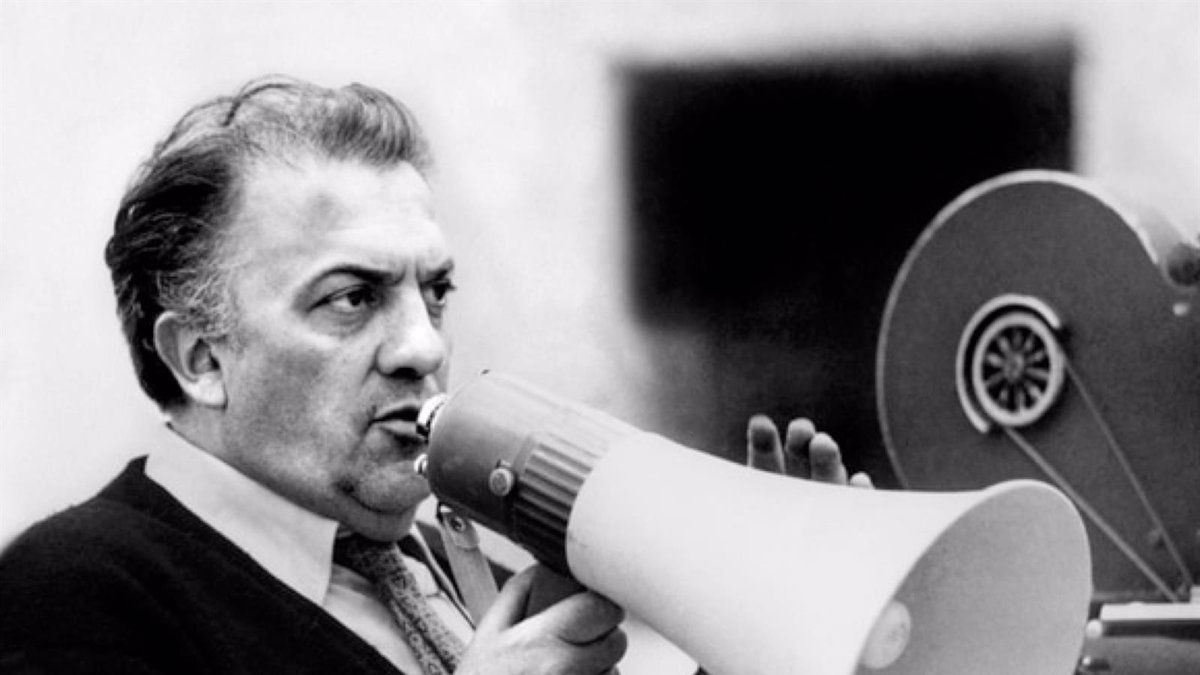In the 20th century, Italian cinema produced great directors: Vittorio De Sica, Rosellini, Antonioni, Visconti, Ettore Scola. But there was another, who is the undisputed number one: Federico Fellini.
Fellini’s total work, made up of dozens of films, contains some exceptional ones that are already incorporated into the history of universal cinema. Examples? “La Strada”, “Amarcord”, “La Dolce Vita”; and in each of these, and the others, his biography is always present.
They reflect, I repeat, his own reality as a provincial kid. And he is remembered at the Rimini primary school, where he was born on January 20, 1920, as a little actor always ready to attract attention.
In other films, Fellini recalls his adolescence in a religious school, severe and sad. And he appears in several films of his early youth still in Rimini with his monotonous winter walks to the cold and deserted beach.
It also remained in his mind and he transfers it to the cinema, the 20-year-old Fellini who observes the arrival of the circus to his small town; his friendship with the clown, with whom he flees his home following the circus. But discovered by his parents, he must return.
But he has already breathed the wonderful air of freedom, a feeling that will never go away.
Fellini was a young bohemian, idle, a headache for his parents.
He is 23 or 24 years old when he goes to live in Florence. He makes cartoons in cafes. He’s not exactly a beggar but he’s not an artist either.
He then goes to Rome. There he does caricatures and journalism in the newspaper “Il Popolo”.
And an anecdotal event changes his life.
Fellini is having lunch in a restaurant. He has miscalculated and does not have enough money to pay for the drink. At a nearby table, a famous actor of the moment, Aldo Fabrizzi, has lunch, who generously gets him out of trouble by paying for him. They sympathize. Later he introduces Fellini to the world of cinema.
Start writing song lyrics and short monologues.
He meets a modest actress whom he marries: Giulietta Masina.
It is linked to the Dtor. Rosellini who commissioned him script of a new film: “Open City Rome”, in which Fellini recreates the fashionable genre: neorealism. But he adds poetry and romanticism. It is directed by Rosellini.
The year is 1945. Fellini is only 25 years old and fame comes to him, as a screenwriter for “Open City Rome”. He already wants, not so much to write, but to direct. And he does it with moderate impact. But at 34 years old he directs “La Strada” which gets a very good impact. And at 40 his total consecration as a director: he created “La Dolce Vita”, with Marcelo Mastroianni and the Swedish Anita Ekberg. He is now and forever, in the history of cinema.
Fellini was very consistent. His actors were almost always the same, as were his technicians and plotters. The greatest example is that of the musical composer Nino Rota, whom he chose for all of his films, until the musician’s death in 1979. Fellini survived him by almost 15 years.
His last film – he was over 70 years old – was “The Voice of the Moon”, a hymn to silence.
It is a tribute to the starry sky of her childhood and the happiness found in solitude, when it is voluntary.
An award that made him proud was the Oscar awarded in 1963 in the USA for the best foreign film for his film “Amarcord”.
In the opinion of many, the 20th century gave us two myths in film direction: a Swede, Ingmar Bergman, and an Italian, Federico Fellini, a large, soft-spoken man with a gentle manner, except on the film set.
One day in June, 1993, an aortic aneurysm during a walk in Switzerland required surgical intervention.
Three months later, on October 31, 1993, Federico Fellini died.
And a final aphorism for this genius of cinema:
“This old world continues to create new men.”
Source: Ambito
David William is a talented author who has made a name for himself in the world of writing. He is a professional author who writes on a wide range of topics, from general interest to opinion news. David is currently working as a writer at 24 hours worlds where he brings his unique perspective and in-depth research to his articles, making them both informative and engaging.




